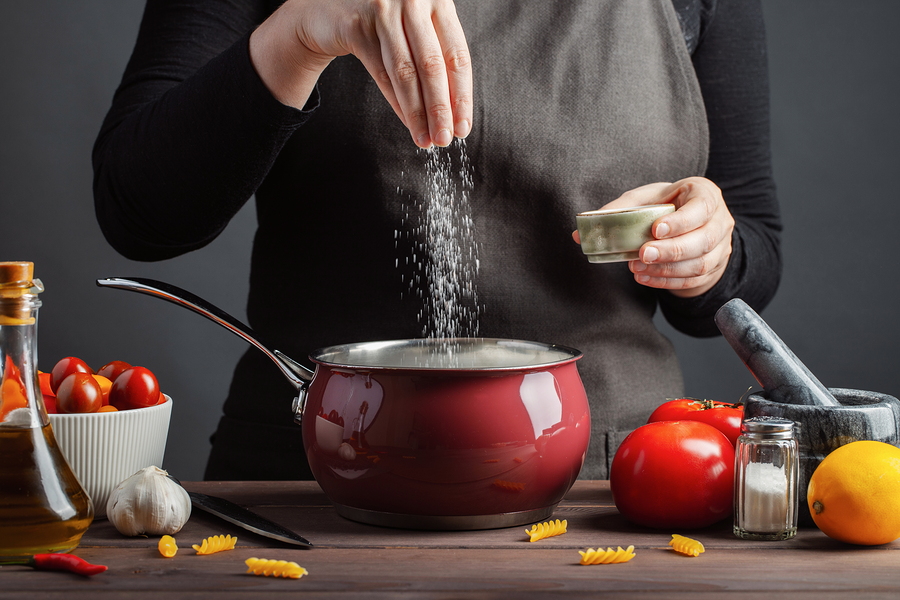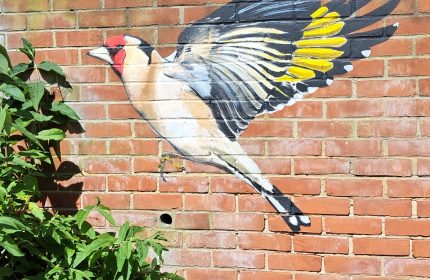Salt – the silent killer
We are told that too much salt is bad for our health, but how much is too much?
Used for millennia as a preservative and added to our foods for flavour, salt is tasty and addictive but according to World Action on Salt and Health, too much salt has a major detrimental affect on the health of one out of three adults in the UK by raising blood pressure.
If the natural balance of sodium in our bodies is disrupted by a diet high in salt then blood pressure will rise. This in turn increases the risk of further health problems such as heart disease and stroke.
However, salt is not all bad and our bodies require a certain amount of salt every day, so how do we get the balance right?
The science of salt
Sodium chloride, commonly known as salt, is in fact 2 minerals: sodium and chloride. Our bodies require both these minerals to function properly.
Our body water content and our balance of electrolytes are regulated by sodium which depends on a balance between how much sodium the kidneys excrete which in turn is regulated by nerves and hormones.
The absorption of nutrients and water from the gut is also helped by sodium levels.
How much salt each day?
One full teaspoon or 6g is all we should be consuming each day, according to the Food Standards Agency. However, much of this we eat unknowingly as it is hidden in everyday foods such as breakfast cereals, bread or ready meals.
Some foods are more obviously high in salt such as bacon, stock cubes, ham, salami, anchovies, cheese, soy sauce, yeast extract, salted and dry roasted nuts, smoked fish and meat and should be eaten sparingly, along with crisps, pasta sauces, pizza and sausages.
The best way to control the amount of salt you consume is by eating home prepared food, cooked from scratch.
Less salt for children too
Salt for a child should be limited as follows:
- From 1 to 3 years only 2g of salt a day
- From 4 to 6 years only 3g of salt a day
- From 7 to 10 years only 5g of salt a day
- Over 11 years only 6g of salt a day
For children under 1 year old both breast milk and formula milk provide the right amount of salt for their kidneys. Babies cannot cope with more than 1g of salt a day and so should not be given any extra.
How can we eat less salt?
The simplest way to cut back on salt is to stop adding it to food or cooking. There are already natural salts in vegetables, meat and fish so you don’t need any more. If you want extra flavour then try adding herbs, spices or balsamic vinegar.
However it is very easy to eat everyday foods without noticing how much salt they contain. Wherever possible choose those with a lower salt content. Read the labels carefully as they should indicate how much salt is present per 100g:
- More than 1.5g salt per 100g (or 0.6g sodium) is HIGH and there may be a red traffic light on the label
- Less than 0.3g salt per 100g (or 0.1g sodium) is LOW and there may be a green traffic light on the label
- Between 0.3g and 1.5g is MEDIUM and there may be an amber traffic light on the label.
Sea salt and table salt contain the same amount of sodium chloride.
See more articles for tasty salad ideas
Do we need more salt in hot weather?
Despite some salt being lost through sweating in hot weather or exercising, extra salt is not generally needed. Our bodies can regulate the amount of salt lost and if we are eating healthily will balance it for us.
It is important though to avoid becoming dehydrated in hot weather so it is recommended to raise fluid intake to 1 or 2 glasses of per hour.
Check here to see if you are dehydrated
For more information on salt visit:
www.worldactiononsalt.com, www.tna.europarchive.org or www.actiononsalt.org.uk
Disclaimer
All content on Silversurfers.com is provided for general information only, and should not be treated at all as a substitute for the medical advice of your own doctor or any other health care professional. Silversurfers will not be responsible or liable for any diagnosis made by a user based on the content on www.silversurfers.com and we are also not liable for the content of any external websites or links from or to Silversurfers to any other websites. Please always consult your own doctor if you’re in any way concerned about any aspect of your health
Melina - Assistant Editor
Latest posts by Melina - Assistant Editor (see all)
- Top tips for hay fever sufferers - April 14, 2024
- Paysan Breton Cream Cheese Breakfast Wraps - April 12, 2024
- 4 Homemade Sweet Treats for Easter - March 24, 2024
- Playground Memories - March 10, 2024
- The invasion of the duvet: the ’10-second bed’ - February 20, 2024





















